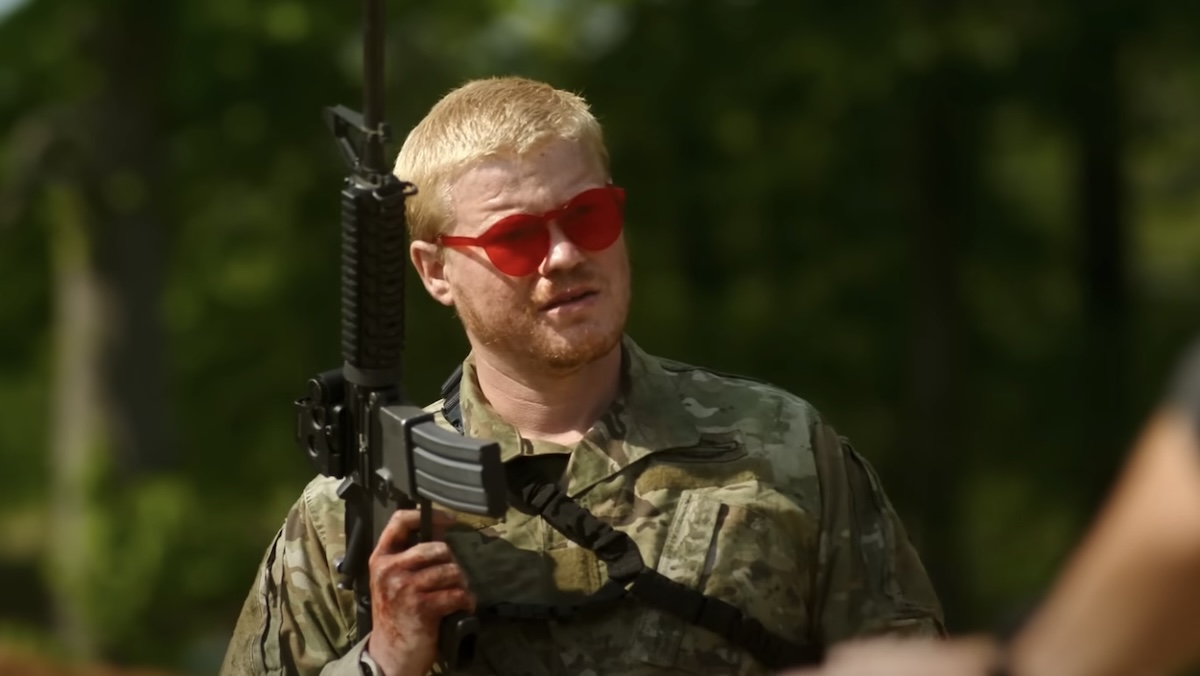Could ‘Civil War’ Give Americans the Empathy We Desperately Need?

A new trailer for A24’s Civil War dropped today. The trailer shows terrified civilians fleeing bombs and soldiers as war breaks out in the United States. It may be a shocking scenario for most Americans, but it’s a daily reality for people in other parts of the world.
If you’ve been following the news, it’s hard not to think of Gaza when you watch the trailer. As I write this, 29,000 people in Gaza have been killed, the majority of them reportedly women and children. Yet President Biden refuses to leverage his power to stop it. Instead, the U.S. just vetoed—for the third time—a U.N. resolution for a ceasefire.
On social media, the terrorist group Hamas has proven to be an easy way to fend off empathy for Palestinian civilians. Obviously the militants who murdered 1,200 Israelis should be held accountable. But as the oozing piles of rotten takes online make clear, many Americans are more than happy to hold the people of Gaza collectively responsible for Hamas’ actions. The five-year-olds killed by snipers? Well, those five-year-olds shouldn’t have voted for Hamas. All is right in the world, nothing bad has happened to them, and the best part is that we don’t have to do anything about it. We don’t have to try and make it stop. We don’t have to let ourselves think about massacred children. We don’t have to see it, we don’t have to think about it, and we don’t have to care.
And lest you think people are just reserving their empathy for Israelis, people on the American Left expressed the same beatific apathy toward Israeli lives on October 7. “Colonizers deserve to be murdered,” they helpfully explained from the comfort of their homes on colonized land. Phew, that was a close one—for a second, they almost cared.
Novelist Richard Powers once described books as “empathy machines,” which are “capable of opening the locked box, if only briefly to be someone other than ourselves.” Exposure to the stories and perspectives of others, even fictional, allows us—forces us—to contend with the complexity of experiences outside our own. People cease to be caricatures and become discomfortingly real. We realize that perhaps a five-year-old can’t actually control what Hamas militants do. Maybe, slowly, we realize that no civilian should be bombed and gunned down, ever.
Could a movie about American civilians suffering in war zones spark some empathy for Gazans—and Ukrainians, and all the other people suffering around the world? Maybe I’m grasping at the thinnest shred of hope I can find. If our leaders have failed us again and again, and our neighbors have proven that they’re blissfully okay with genocide, then where can we turn for a reality check, but fiction?
(featured image: A24)
Have a tip we should know? [email protected]
